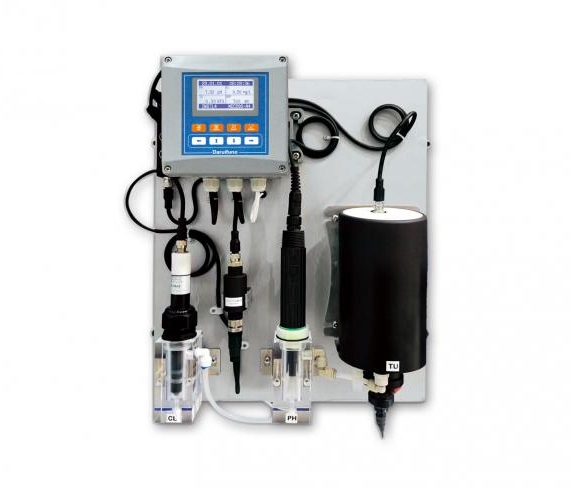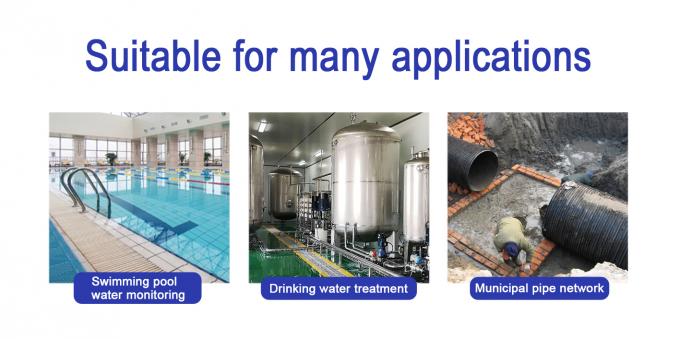The hollow glass brick industry standard was developed by Dezhou Jinghua Group Zhenhua Decorative Glass Co., Ltd., in collaboration with the National Building Glass Standardization Technical Committee, the China Building and Industrial Glass Association, the China Building Material Industry Association Standard Quality Department, and the Science and Education Committee of the China Building Material Industry Association. This joint effort ensured that the new standard reflects both national requirements and international best practices.
In revising the standard, the latest European standard DIN.EN101-1:2003 "Glass bricks and glass floor tiles" and the Chinese entry-exit inspection and quarantine industry standard SN/T1024-2001 "Export hollow glass brick inspection regulations" were adopted as references. However, the new standard goes beyond these by introducing more stringent criteria for appearance quality and color uniformity. Additionally, it includes new testing requirements such as impact resistance and thermal shock resistance, which were not previously required in similar standards. As a result, the technical specifications of this standard now align with global advanced levels.
The introduction and enforcement of this standard will serve as a crucial reference for evaluating the quality of hollow glass bricks. It plays a vital role in regulating the market and promoting the healthy and orderly development of China’s glass brick industry. Moreover, by setting clear quality benchmarks, the standard will help guide consumer demand and support the growth of domestic manufacturers. This is especially important for Chinese companies aiming to compete in major international projects, as it enhances the global competitiveness of Chinese hollow glass brick products and opens up new opportunities for export and international collaboration.
Digital Laser Water Turbidity Sensor
Overview
The Digital Laser Water Turbidity Sensor is a state-of-the-art device designed for high accuracy measurements in industrial treated water. It utilizes advanced laser technology to provide precise readings of turbidity levels, making it ideal for applications that require stringent water quality monitoring.

Key Features
- High Accuracy: These sensors have highly accurate measurement capabilities, capable of detecting and measuring extremely low concentrations of suspended solids or particles in water samples.
- Low Turbidity Range: Specifically designed for low turbidity water samples, providing accurate measurements over a range of 0 to 100 NTU.
- Advanced Technology: Utilizes a 660nm laser to measure turbidity, with scattered light at 90° to the incident angle received by a silicon photocell receiver immersed in the water sample.
- Easy Calibration: The sensor display features three buttons for quick and easy calibration.
- Drain Port: Equipped with a drain port at the bottom to ensure accuracy, stability, and facilitate maintenance and cleaning.
Applications
The Digital Laser Water Turbidity Sensor is primarily used in scenarios that require highly pure water quality, such as:
- Laboratory Applications: Ensuring precise water quality for experiments and research.
- Pharmaceutical Industry: Monitoring water quality in the production of drugs and medical devices.
- Drinking Water Treatment: Real-time monitoring of drinking water turbidity to ensure safe and qualified water quality.
- Electronic Manufacturing: Maintaining pure water quality in the production of electronic components.
- Water Treatment Facilities: Monitoring turbidity levels in sewage treatment plants and industrial wastewater treatment plants.

Benefits
- High Sensitivity: Capable of detecting extremely low turbidity liquids and accurately measuring tiny particles or suspended matter.
- Strong Adaptability: Suitable for various liquids, including water, solutions, and suspensions, and can be used in various industrial applications.
- Online Monitoring: Real-time monitoring characteristics allow for easy integration into automation systems for online monitoring and feedback control.
- Automated Control: Can be integrated with automation systems to achieve automated control of water quality, improving monitoring and processing efficiency.
Download User Manual
For more detailed information and instructions on how to use the Digital Laser Water Turbidity Sensor, please download the OLTU600 Low Turbidity Sensor User Manual.
Laser Water Turbidity Sensor,Digital Laser,Industrial Treated Water,Digital Water Turbidity Sensor
Suzhou Delfino Environmental Technology Co., Ltd. , https://www.daruifuno.com
